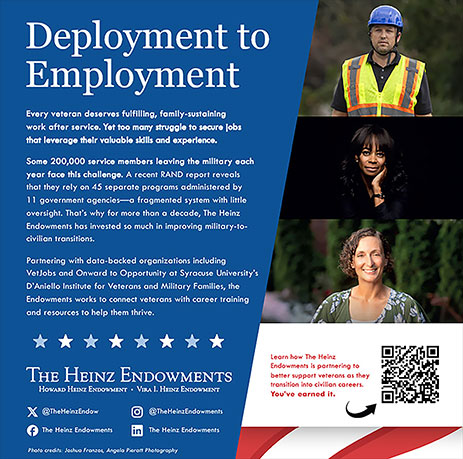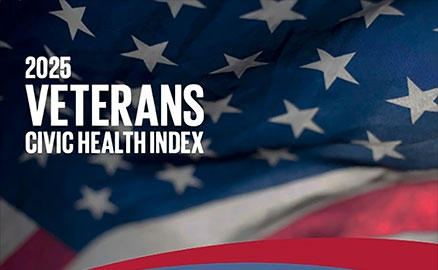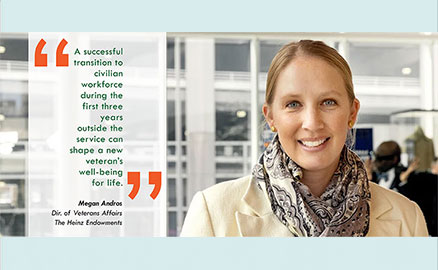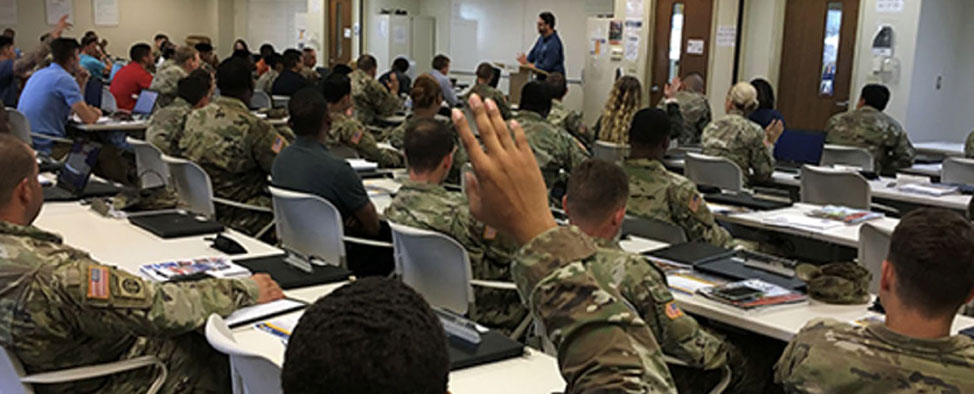
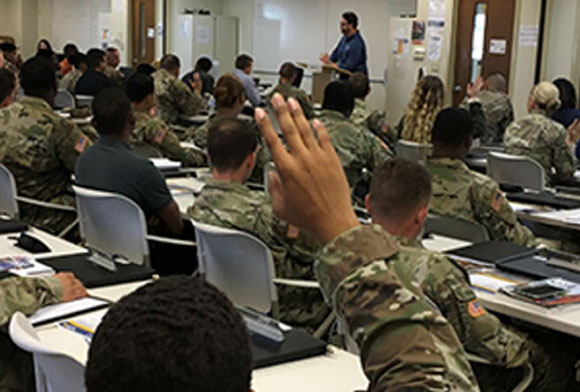
The Endowments’ Veterans strategy is based firmly on the evidence emerging nationwide: that the veteran population is overwhelmingly comprised of service-minded, talent-rich people who are assets to their communities and who leave the military with the ability to be immediately successful as civilians. In southwestern Pennsylvania, more than 140,000 veterans — about 35,000 of whom are post-9/11 service members — are highly-skilled yet undervalued assets in our region. The Endowments’ goal is to improve reintegration outcomes for veterans and their families and leverage their wealth of experience and knowledge for the good of the Pittsburgh region.
In 2013, the Endowments created its Veterans strategy and began investing in programs that directly benefit veterans. Our nationally recognized model has served tens of thousands of veterans in western Pennsylvania, offering workforce placement and development opportunities to help them thrive.
Transition from the military to the civilian world can be challenging for even the most accomplished and well-prepared veterans. Servicemembers lose their income, health insurance, and housing on the day they “final out” of the military. Many are also marginalized by a national narrative depicting them as men and women broken by visible or invisible wounds of war. Significant government resources exist to support veterans across multiple government agencies, primarily at the federal level, but this support is uncoordinated and almost exclusively reactive.
The Endowments’ strategy seeks to foster a positive reintegration experience that respects and acknowledges veterans’ contributions – past, present, and future- and leverages their unique talent and life experience to strengthen our community.
We do so by investing in five core strategies to ensure an effective and holistic transition:
• Service Navigation: Create coordinated, easy-to-navigate pipelines that strengthen and align Southwestern Pennsylvania’s network of service providers to improve the wellbeing of veterans, servicemembers, and their families.
• Full Employment: Equip post-9/11 veterans and servicemembers with the skills and networks necessary to obtain meaningful employment with livable wages and potential for career progression.
• Leadership: Equip post-9/11 veterans and servicemembers with the skills and networks necessary to become regional leaders and enact solutions to community needs that align with their passions.
• Perception Change: Prompt widespread, rigorous, and informed critical thinking about veterans, servicemembers, and their families.
• Policy Change: Influence evidence-based policy at the local, state and national levels by leveraging research and robust data obtained from the Endowments’ investments.
These interconnected strategies can transform how our region supports and empowers veterans, ensuring their successful transition while harnessing their valuable contributions to strengthen southwestern Pennsylvania for all residents.

